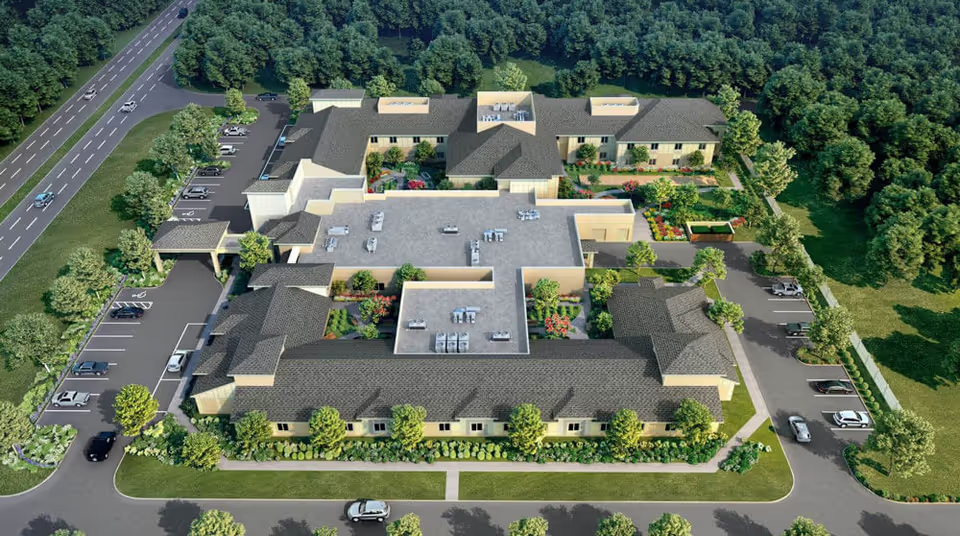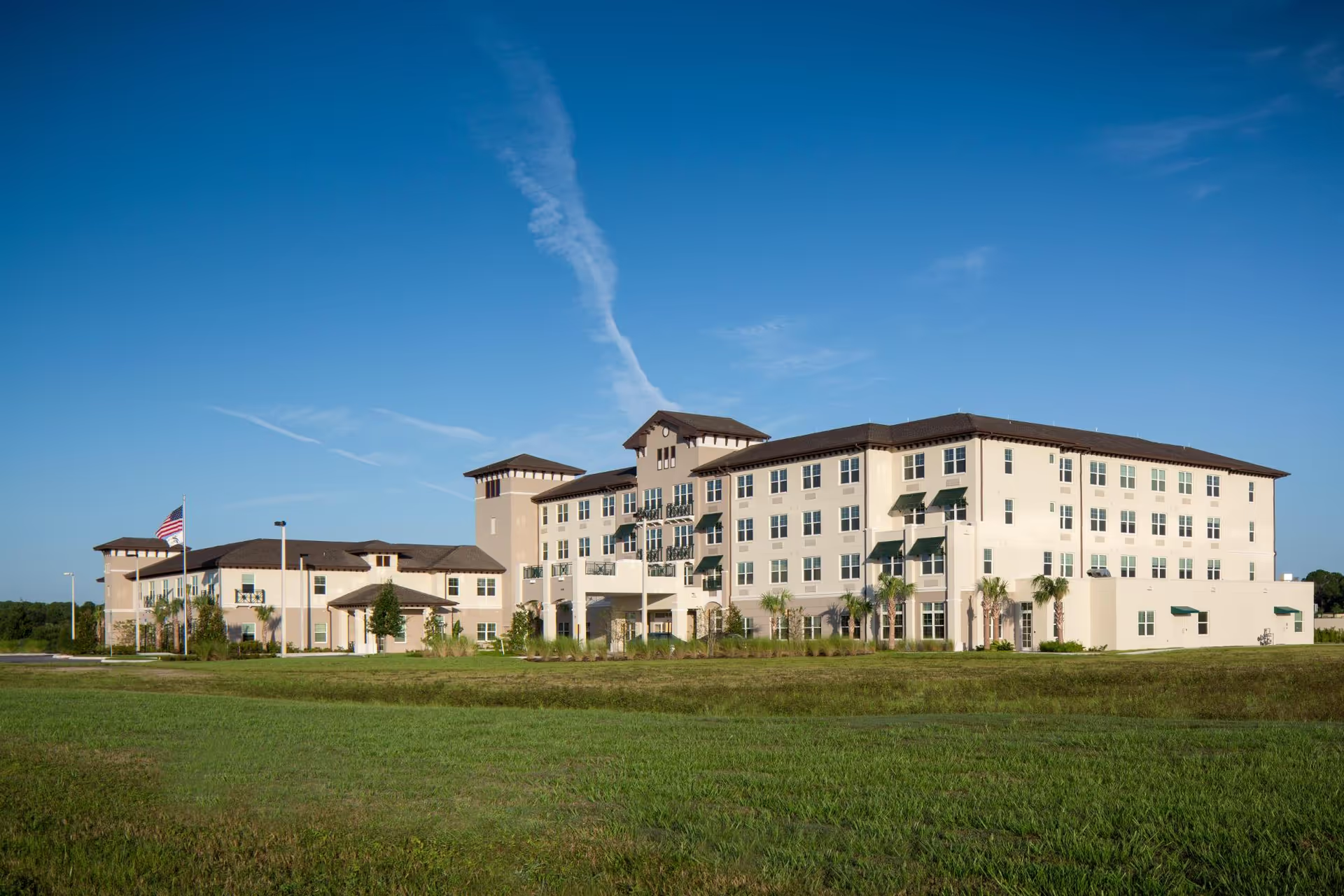Overall sentiment: The Reserve at Peachtree City Assisted Living and Memory Care receives a majority of positive comments centered on staff compassion, relationship-based care, cleanliness, and a strong activities program. Many reviewers highlight the facility's welcoming admissions experience, remodeled and tidy common areas, and a family-like environment where staff go beyond job descriptions to form bonds with residents. Frequent praise is given to specific roles—activities directors, front desk staff, nurses and caregivers—who are credited with improving residents' mental state, social engagement, and in some instances physical mobility through therapy.
Care quality and staff: The most consistent strength across reviews is the quality of interpersonal care. Families repeatedly describe staff as loving, patient, attentive, and capable of building trusting relationships with residents. Long-tenured employees and continuity of care are mentioned as contributors to a stable, second-home atmosphere. Many reviewers specify proactive communication from nursing staff and administrators, including frequent updates that provide peace of mind. Several accounts note tangible improvements in residents’ mood, appetite, and alertness after moving in. However, there is not uniformity: a nontrivial subset of reviews report significant clinical concerns—medication lapses, falls, and very serious allegations of neglect in isolated but severe reports. These negative reports stand in sharp contrast to the more common positive stories and suggest variability in clinical execution or isolated incidents that families should investigate during a tour or intake.
Facilities, housekeeping, and environment: Most reviews describe a clean, well-maintained environment with remodeled interiors, attractive dining areas, communal spaces, and pleasant outdoor courtyards or gardens. Housekeeping and laundry services are regularly praised—rooms cleaned daily and clothes/linens washed. Several reviewers compliment spacious private rooms and accessible layouts. At the same time, multiple reviewers flagged specific facility issues: some rooms were described as small or dated despite overall remodels, occasional odors (notably urine), and instances where rooms arrived empty or items were missing. A few reviewers felt portions of the building had a closed-in feel (low ceilings, limited direct outdoor access) or lacked extensive outdoor amenities, creating mixed impressions depending on the specific unit and wing.
Dining and nutrition: The dining program is generally well-regarded; food is often described as home-cooked, appealing, and improved over time by some families. Reviewers appreciated an accommodating kitchen staff that customized meals to encourage eating and hosted visiting cooks or special menus. Nevertheless, an important pattern is inconsistency regarding medical diets: several families reported that meals were not appropriately tailored for diabetes or heart conditions and called for better nutritionist oversight. Some noted small portions or declining food quality after ownership or staff changes. If dietary needs are a priority, families should confirm individualized meal plans and nutritionist involvement during admission.
Activities and social life: The Reserve’s activities program is repeatedly cited as a major strength. Reviewers praise a busy calendar of events suitable for varying ability levels—arts and crafts, devotionals, games, outings, holiday parties, and exercise or therapy-based activities. The activities director receives frequent individual commendation for engagement and inclusivity, and families credit the program for notable improvements in resident socialization and mood. Memory care-specific programming (singing, devotionals, structured engagement) is generally described as effective, though a few reviewers felt shared spaces or mixed-level groupings could be unsettling for some dementia patients.
Clinical services, therapy and safety concerns: Reviews present a mixed picture on clinical services. Some families report positive therapy outcomes and improved mobility after onsite PT; others report promised therapy not delivered, physical therapy being inconsistent, or operational limitations (e.g., lifts not allowed, bed board training not provided). Safety concerns—slow pendant responses, falls, medication errors, and in isolated extreme accounts bedsores and neglect—appear intermittently and represent the most serious themes among critical reviews. Understaffing and inconsistent coverage are frequently associated with these clinical and safety issues, suggesting concerns may correlate with staff levels or turnover on particular shifts.
Management, communication and operations: Many reviewers praise administrative staff for being welcoming, efficient, and communicative—particularly during admissions and transitions. Positive mention of coordinators, directors, and a responsive business office is common. That said, several reviews report operational problems: unanswered calls, staff on phones while working, delays in response, items missing after move-in, and perceived overselling of services in marketing materials. Some families also report post-sale staffing layoffs, price increases, and declines in food or service quality, indicating that ownership changes have been a source of concern for some residents.
Memory care and assisted living fit: The Reserve offers both assisted living and memory care, and many families are satisfied with the memory-care programming and staff expertise. Still, a few reviews indicate a mismatch between level of cognitive impairment and the assisted living side (dementia residents being in AL), or shared-memory spaces causing distress. Prospective residents with higher medical or mobility needs sometimes could not be accepted or later required transfer, and a small number of families reported being helped to find higher-level nursing care when needs exceeded capabilities.
Patterns and variability: The reviews collectively portray a community that can provide compassionate, high-quality social and personal care for many residents, driven largely by dedicated staff and a robust activities program. However, there is clear variability—some families experienced lapses in clinical care, unmet promises for therapy, or operational lapses such as missing items and understaffing. The most severe negative reports describe negligence and poor conditions; these are less common but significant and warrant direct inquiry by prospective families.
Recommendations for prospective families: Based on the themes in reviews, prospective residents and families should (1) meet key staff (nursing lead, activities director, dietary manager) and ask for examples of individualized care plans, (2) verify clinical capabilities and frequency of therapy if mobility or skilled therapy is needed, (3) confirm emergency response times and pendant procedures, (4) discuss nutrition management for chronic conditions and whether a dietitian is involved, (5) tour the exact unit to assess room size, odor and direct outdoor access, and (6) ask about staffing levels, turnover history, and any recent ownership changes. Many reviewers found The Reserve to be an excellent, home-like option where residents thrive socially and emotionally; others experienced serious lapses in clinical care. Visiting in person and getting specific commitments in writing will best identify whether the facility is a good fit for a particular loved one.







